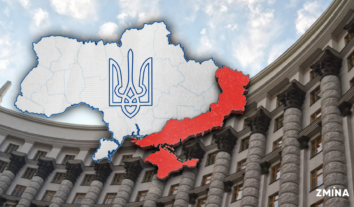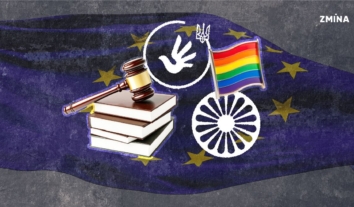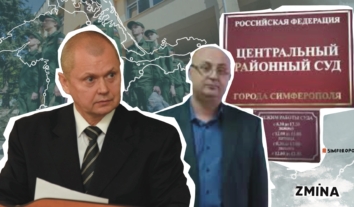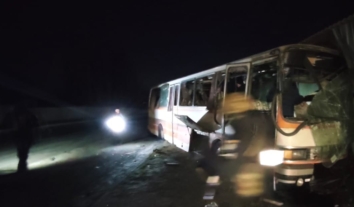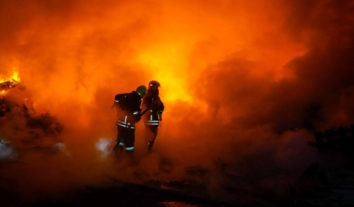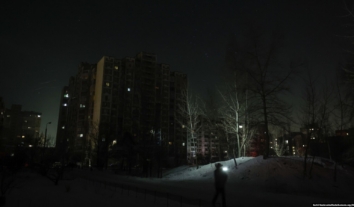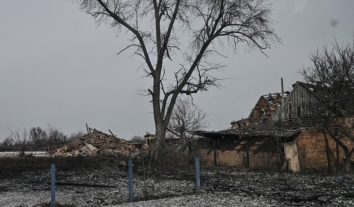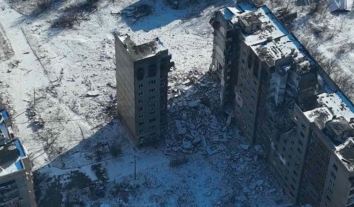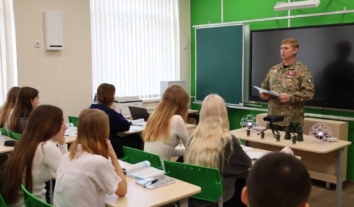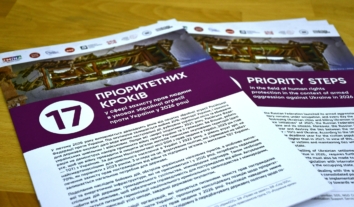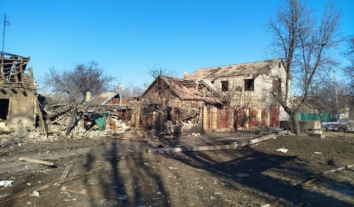Yulia. I want to have opportunity to return home
Yulia is a brave girl. Seeing how the hometown becomes strange, how people with arms appear in it, how desperation and fear become common in the glances of passers-by… Yulia sent her son to a safe place and returned to help those who stayed in the strange home Luhansk.
We continue publishing the stories of people, who have lost their homes as a result of the conflict in eastern Ukraine and Crimea, as well as of those, who have lent a helping hand in difficult times.

#We had a cinema club, we conducted the night film festival for six years, tried to launch the project “Science Picnic for School Students” – the experiments that could be shown inside the city. I liked to talk with people with active lifestyle, who enjoyed doing something for their city.
The decision to move was painful. On the one hand, I could not safely move across the city as it had been seized and the armed men were on the streets. After I had organized and participated in the pro-Ukrainian rallies, there were some unpleasant situations when I was recognized on the street, and it could end badly. For myself #I tried to stay in the city to the bitter end.
 In September, we arrived in Luhansk on the day of the city. The city was completely empty, we saw few cars, the jeeps with no windows with young people in the uniform inside, and very few passers-by peering warily at each other’s faces. The danger was felt everywhere. #When you go outside, you want to hold your breath and not to breathe till you enter the apartment and close the door. You constantly look back, try to dress humbly not to attract too much attention. I could not live in such a city, the city of the dead. I was scared, I did not see my home city, it was strange and very dangerous.
In September, we arrived in Luhansk on the day of the city. The city was completely empty, we saw few cars, the jeeps with no windows with young people in the uniform inside, and very few passers-by peering warily at each other’s faces. The danger was felt everywhere. #When you go outside, you want to hold your breath and not to breathe till you enter the apartment and close the door. You constantly look back, try to dress humbly not to attract too much attention. I could not live in such a city, the city of the dead. I was scared, I did not see my home city, it was strange and very dangerous.
People, whom I last saw in Luhansk, people on the frontline, and people in Kyiv are very different, they have different emotional and psychological condition. People in Luhansk are intimidated, wary, they are afraid of each other, the danger comes from the people around them. People living on the frontline have absolutely no reaction at the things happening around them. They have got used living under the constant explosions, live in war, they can stay in a cellar for months, without light, water and get a warm from a small stove. They live at the level of self preservation instincts and the majority of human values are switched off in times of danger. I do not understand people in Kyiv, who live in peace and do not pay attention to what is happening. On the one hand, I cannot explain to myself what these people should do and how they should behave. I understand that life does not end. On the other hand, I find it difficult to communicate with them. #We live in different realities, I have left somewhere there, even when I stay physically here.
For me it was very important that we #have started our trips to supply humanitarian aid to [the liberated and front-line] territories, where you can’t mail a package to. Our start was very cautious. A few of us gathered. There were people in the same condition as I was, who wanted to do something, but were afraid of doing it on their own, and we decided that we should try.
#We went to the districts, which are not being evacuated, where a lot of people have stayed. When the conflict escalates, people want to leave, but it’s pretty difficult to do. There is no public transport. If you don’t have your own car, it will cost pretty much to rent it. Such families started to reach us and we could take a family on our way. We don’t succeed always as people have very difficult psychological state there. They call, leave application, ask to take them. They may call very often asking when they will be picked up, but when you come to take them, they say, “We are not ready“, “There is truce now“, “Could you come tomorrow, we haven’t packed the TV set.” There are very different reactions.

#We have different experience of work with the government agencies. Central Kyiv authorities often ignore volunteer activity and do not let volunteers with their proposals, except when they need help. It is a problem as the state puts a barrier and does not want to let its citizens work in this direction. It’s difficult to work for the authorities on the front line since the events have had an impact on everybody. They have a huge flow of work, little funding, a lot of requests from people, whom they do not know how to help. But there are cases when the government is ready to work, is interested and want to help them. Unfortunately, there are some administrations which have no desire to pull up their city, being afraid of pressure, although it is their main task.

Personally I would like to return to my private space. We are always on the move, we go together, we live together. You cannot stay alone as you have to constantly talk to someone. I would like to spend more time with my family. I am virtually absent in the life of my four-year-old son. #I have not so much desire to return home as the desire to have the opportunity to return home, to have my choice. Personally I cannot decide whether I will go back, but I would like to understand to what extent my home is still home to me.
#It is interesting to break the stereotypes when you come to the servicemen, talk with them, especially if you speak Ukrainian, they find out that you are from Luhansk and do not understand what’s going on. They are surprised when the volunteers from Luhansk come to them. You realize that they bear direct relation to everything around, they stay on this war all the time, they see the locals who look back at them warily, but they have never seen other people, who left because of political views and now try to help.
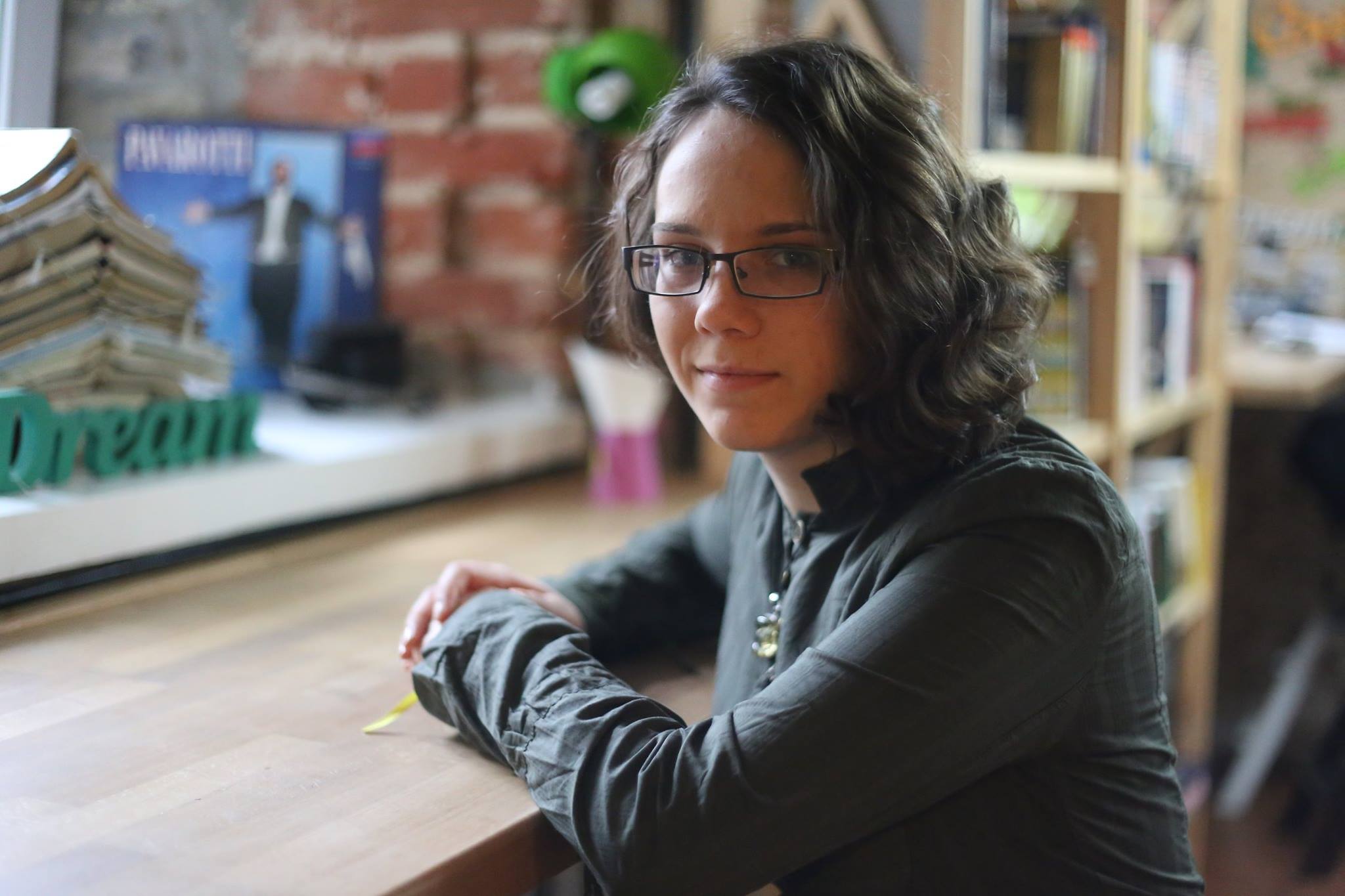
The memories were noted down in 2014.
The story of Yulia is presented within the framework of the exhibition “My Place”, organized by the Educational Centre “Space of Tolerance” and the Congress of National Communities, supported by the Royal Netherlands Embassy. The authors of the texts are Kyra Kreyderman and Uljana Ustinova. The photos were taken from the family archive.



